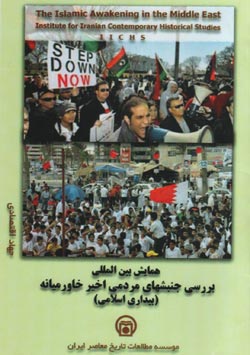 |
 |




The foundation of political philosophy in Iran-constitutional period



Iranian
Contemporary History No. 60


History
Hall
|
|
|

During the first world war, when the Ottoman Empire sided with the three party coalition against the three party alliance led by the British, the latter decided to use the religious, linguistic and national diversity to divide the empire into smaller territories. Through the exactly planned British schemes, the newly established countries found frontier disputes among themselves leading to confrontation of nations in the region. The lack of unity and integrity of the Middle East nations, provided good opportunity for the eastern countries to use it. Furthermore, through their extensive influence in various social strata, the British has had the control of the Middle East in their hands. Therefore, no deep relationship was formed between the governments of the region and their nations, and due to the expansion of the rule of non democratic and non nationalist governments in the Middle East, the radical movements and the confrontation of the state and nations led to the underdevelopment of the Middle Eastern countries. So, despite their rich resources, none of these countries managed themselves to reach the level of the first world countries.
The active presence of commercial capitalism, enjoying governmental favors, and the vast economic and administrative corruption led to the unfair distribution of wealth, and financial difficulties of the majority of people of the region. On the other hand, the low per capita study level deferred the formation of national identity and independent action from the western powers.
Many of the Middle Eastern countries do not have the instruments of power and do not rely on their nations to keep their independence. On the other hand, there exist some factors in the region including religious, national, tribal and linguistic features with a diversity more expansive than the western powers even the united nations. Not much protest voice were heard against this situation.
"The abstract of the articles presented in this conference edited in persian language and is available in WORD and PDF formats as follows"
 WORD Format WORD Format
 PDF Format PDF Format
|
|

|






















